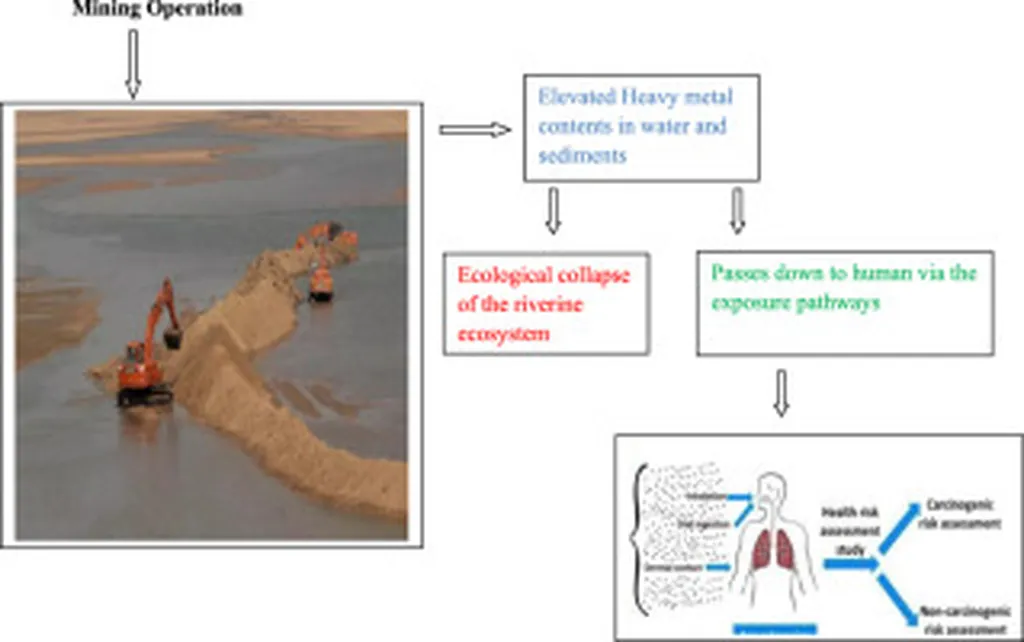In the heart of Nigeria’s Benue State, a critical study has cast a spotlight on the water quality of the Odugbo River, revealing potential health risks that could have significant implications for the energy sector and local communities. The research, led by Alfa Unekwiu Dickson from the Department of Chemistry at the Federal College of Education Odugbo, analyzed heavy metal levels in water samples collected from various points along the river and even bottled water, using Atomic Absorption Spectroscopy (AAS) technique.
The findings, published in the ‘International Journal of Emerging Research in Engineering, Science, and Management’ (translated as ‘International Journal of Emerging Research in Engineering, Science, and Management’), paint a concerning picture. Dickson and his team detected elevated levels of lead (Pb) and cadmium (Cd) in all samples, exceeding the permissible limits set by regulatory bodies such as the USEPA, WHO, SON, and NAFDAC. “The concentrations of Pb and Cd in all the water samples analysed were detected above the permissible limits of the regulatory bodies,” Dickson noted, emphasizing the potential health risks, either short-term or long-term, to the human body.
The implications of these findings are far-reaching, particularly for the energy sector. Water is a crucial resource for energy production, and contamination can lead to operational challenges and increased treatment costs. Moreover, the health risks identified could impact the workforce, leading to potential productivity losses and increased healthcare costs.
The study also revealed that the bottled water analyzed was not significantly better in quality compared to the river water, a finding that could shake consumer confidence and have commercial ramifications for the bottled water industry.
This research underscores the urgent need for proactive measures to address water contamination. As Dickson puts it, “There is a need to take proactive action following the results of this research.” This could involve enhanced water treatment processes, stricter regulatory enforcement, and increased investment in water infrastructure.
The study also opens up avenues for future research. Understanding the sources of these heavy metals and developing effective mitigation strategies will be crucial. Furthermore, similar studies in other regions could provide a more comprehensive picture of water quality in Nigeria and beyond.
In conclusion, this research serves as a wake-up call, highlighting the importance of water quality monitoring and the potential impacts of contamination on both health and the energy sector. It’s a reminder that access to clean water is not just a basic human right but also a critical factor for economic development and industrial growth.

